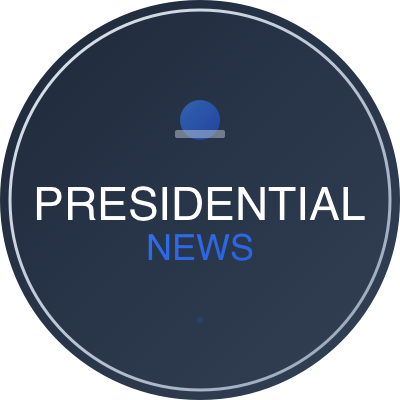NextFin news, In a notable divergence from his usual alignment with conservative commentary, Ben Shapiro, a prominent political analyst and host, openly criticized President Donald Trump's administration's tariff measures on November 8, 2025. Speaking from his platform, Shapiro described Trump's tariffs as 'illegal' and 'unconstitutional,' marking a rare public rebuke against the sitting president’s key economic policy. This statement emerged in the context of ongoing debate centered in Washington, D.C., where the Trump administration has continued to rely heavily on tariffs as a tool to protect U.S. manufacturing and counteract global trade imbalances.
Shapiro’s criticism specifically targets the legal and constitutional basis of the tariffs implemented since Trump’s inauguration on January 20, 2025. He argued that these trade barriers not only contravene established legal frameworks governing international commerce but also unduly burden the broader American economy. The tariffs, according to Shapiro, were enacted without proper statutory authority from Congress, raising serious separation of powers concerns. The tariffs have been maintained by executive action, primarily justified by national security provisions, which Shapiro contests as an overreach of presidential power.
The timing of this critique is significant as the Supreme Court weighs potential challenges to the tariff measures. Shapiro emphasized that the judicial branch's intervention is critical to ensure the tariffs’ compliance with constitutional standards. Moreover, he underscored the economic impact observed since the tariffs’ introduction: while some manufacturers may report short-term benefits from protections against foreign competition, the aggregate data reveal widespread disruption across supply chains and increased input costs for manufacturers and consumers alike.
From an economic standpoint, Shapiro referenced recent surveys indicating that nearly 70% of U.S. business leaders report that Trump's tariffs and retaliatory measures have negatively affected their operations. For example, a survey by Industry Week and Endeavor Business Intelligence detailed that a majority of manufacturing executives observed declining production efficiencies and escalating costs due to tariffs. This is consistent with broader economic indicators showing that while manufacturing output in the U.S. has grown modestly, employment levels in manufacturing have continued to decline, influenced as much by technological automation as by trade policies.
Shapiro’s public dissent may signal an emerging fracture within conservative economic thought leadership. Traditionally aligned with Republican trade policies favoring protectionism under Trump, Shapiro represents a more classical conservative jurisprudential viewpoint emphasizing constitutional limits on executive authority and free-market principles. His stance invites reconsideration of the long-term ramifications of tariffs beyond their political appeal to nationalist voter bases.
Analyzing the causes behind Shapiro’s criticism involves acknowledging the complex legal environment surrounding tariffs in 2025. President Trump’s tariffs have been enacted primarily under Section 232 of the Trade Expansion Act, which allows tariffs for national security reasons. However, legal experts, including constitutional scholars, argue that interpreting national security to justify broad economic tariffs without explicit congressional approval stretches the original intent of the law. This has spurred numerous lawsuits challenging the tariffs’ legality, with the Supreme Court’s impending review regarded as pivotal.
Beyond legality, the economic consequences of these tariffs could be counterproductive. Empirical trade models and economic data suggest tariffs tend to increase consumer prices and disrupt global supply chains. Inflationary pressures remain a concern with personal consumption expenditure inflation projected at 2.6% in 2026, higher than earlier estimates, partly attributable to increased costs from tariffs. Although the Federal Reserve has signaled interest rate cuts to stimulate the economy, it recognizes tariffs as structural impediments that monetary policy cannot fully offset.
Looking forward, if the Supreme Court rules against the tariffs, it could trigger a significant shift in U.S. trade policy, potentially dismantling tariffs and encouraging a return to lower trade barriers. Conversely, an affirmation of their legality would embolden the Trump administration’s protectionist strategy but escalate trade tensions with key partners, risking retaliatory measures and market instability—especially in sectors like manufacturing, agriculture, and technology supply chains heavily dependent on imported components.
Shapiro’s critique also reflects deeper political dynamics within the Republican Party under President Trump’s leadership. As the party balances appeals to nationalist voters and business interests wary of economic disruptions, internal debate over trade policy legitimacy and effectiveness is likely to intensify through 2026 and beyond. This internal division could influence legislative priorities, judicial nominations, and the broader political economy landscape as the country approaches the 2026 midterm elections.
In conclusion, Ben Shapiro’s denunciation of the Trump tariffs as 'illegal' and 'unconstitutional' brings to light critical tensions in U.S. economic policymaking under Republican stewardship in 2025. His arguments underscore the necessity for clear legal grounding in trade policy and wary reassessment of tariff-driven protectionism amid complex economic realities. The unfolding judicial scrutiny and resultant political feedback will profoundly shape the trajectory of U.S. trade and economic strategy in the coming years.
According to South Florida Free News (https://sfl.media/ben-shapiro-breaks-with-trump-calling-his-tariffs-illegal-and-unconstitutional/), Shapiro’s stance marks a notable shift in the national dialogue about the role of tariffs in economic recovery and legal limits on presidential power.
Explore more exclusive insights at nextfin.ai.

